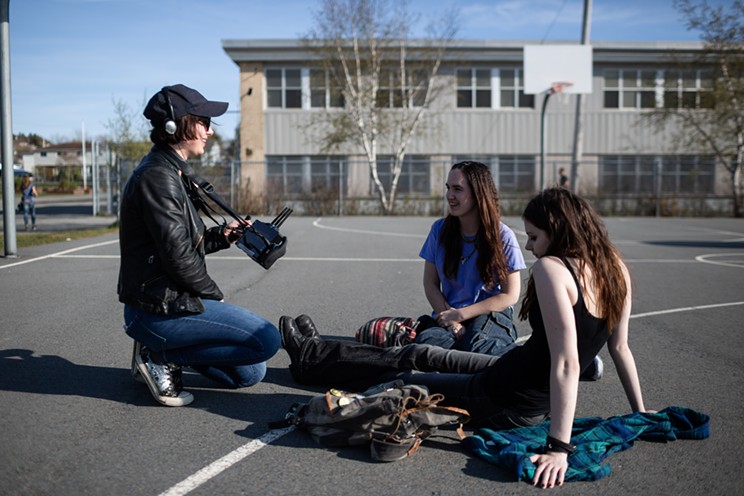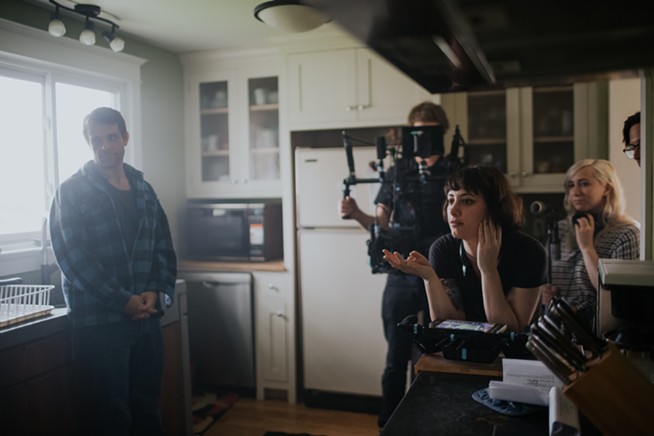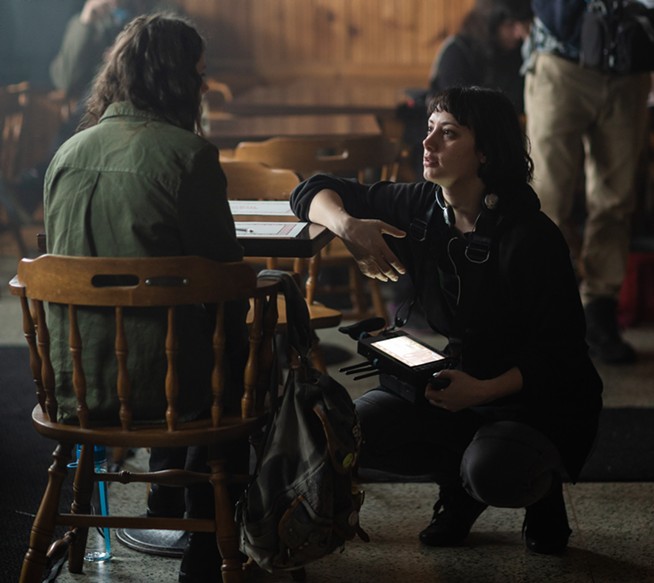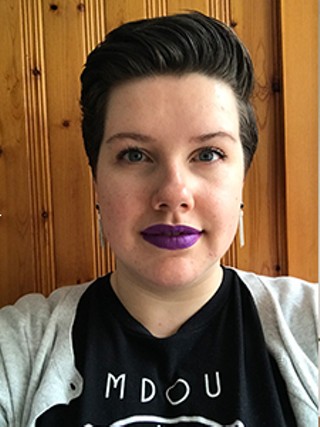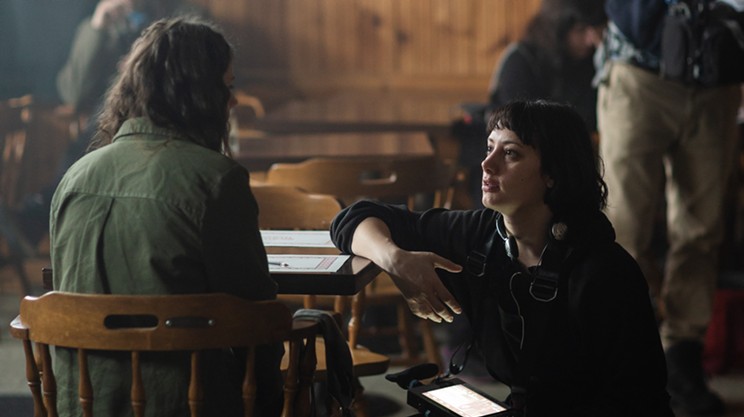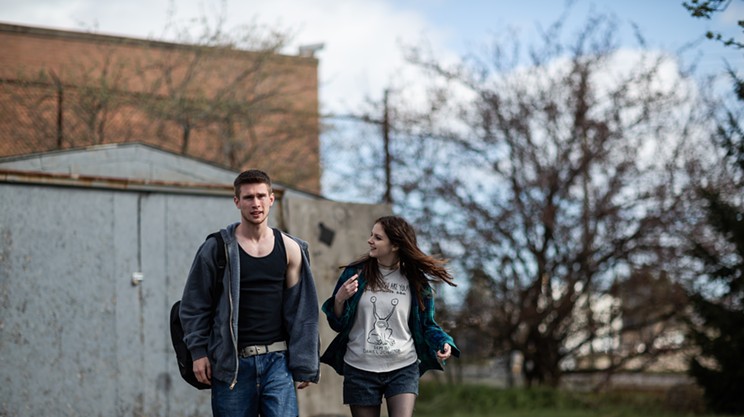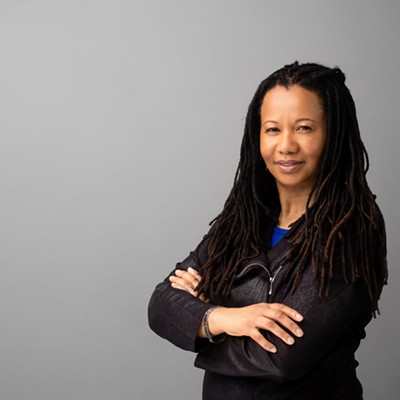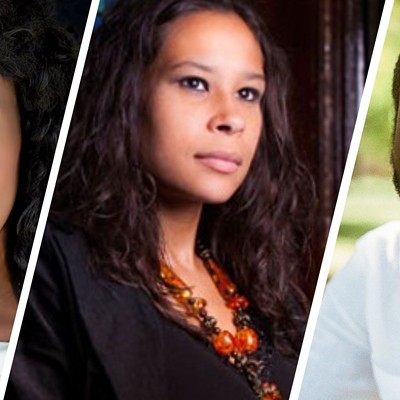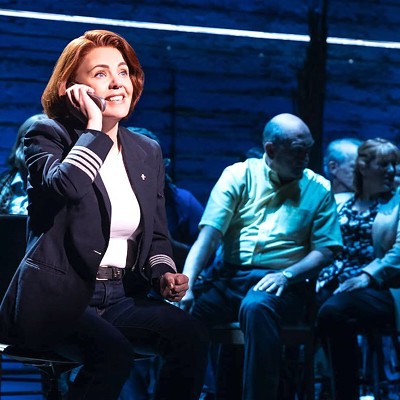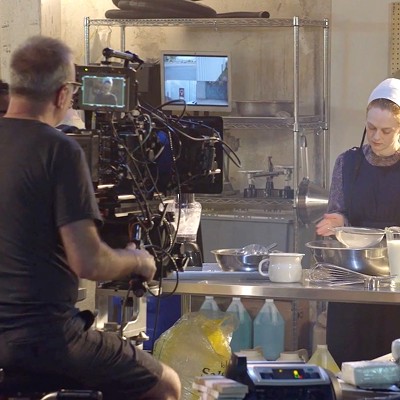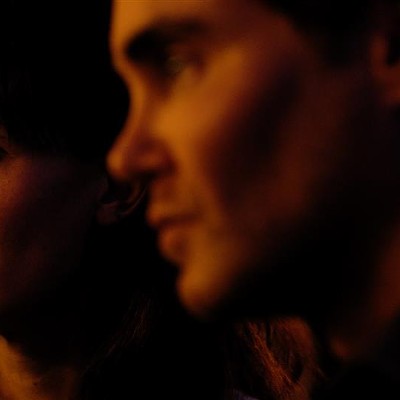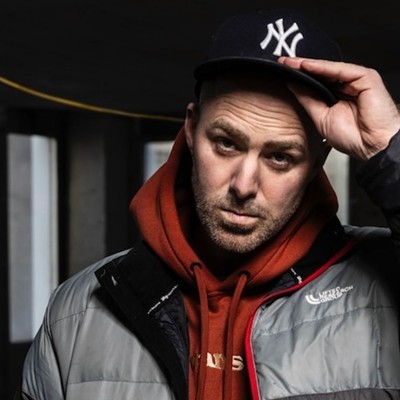When watching Night Blooms, the debut feature film from Stephanie Joline, it’s impossible for a viewer's stomach to remain unclenched. The knots start tying in reaction to the visceral immersion felt from the movie’s opening frames: That you’re stuck in the nowheresville of 1998 small town Nova Scotia, just like the film’s anti-hero main character, Carly. Watching her lurch from bad decision (skipping high school classes to huff aerosol) to worse (making out with a classmate who sells stolen electronics), the knots double back on themselves. By the time she decides to make her best friend’s dad her next mark, the taut bowline in your abdomen will have calcified. But this messiness, Joline posits, is exactly the point.
“I had one version of the movie that I called the ‘risky draft.’ And then, I added a bunch of stuff—fully with the intention to never show it to anyone. I was like ‘I'm gonna just push the envelope as far as I can. And then, with my eyes only, pull back where I have to pull back.’ So I wrote a risky draft. And then I sat with it for a while and I was like: ‘I think this is good.’ That's the draft we end up making,” she says, speaking with The Coast by phone days before Night Blooms will have its theatrical debut at Cineplex Park Lane (the movie is showing at the theatre chain’s downtown location from April 8 to April 14).
“In my ‘risky draft’, the opening scene opened on our main character masturbating with a marker…I was like, ‘Someone's gonna make me change this.’ Like, at some point someone's gonna be like, ‘Hey, Steph, can you tone this down?’ And no one ever did. So that's the movie we made.”
Carly’s messiness (she is never in class, she routinely forgets about the younger siblings she should be babysitting) is dovetailed with a narrative murkiness that is bound to make Night Blooms—and Joline—a lightning rod. “I really like grey areas of things that are sort of touchy topics. So it was just easy for me to go: oh, let's write about this,” Joline says.
“The easiest thing to write would have been a young girl that gets taken advantage of by an older man who is a predator. And that's a good story to tell. People should tell that story, too. But the hardest thing for me to write would be: Let's tell that story where none of them are really the bad guy and everyone is just flawed. And then my friends were like, ‘There's no way you can tell that story and not make him look like a terrible person.’”
She continues: “It was just a challenge for me: To not make him the good guy—I didn't want to do the opposite. I didn't want her to be seducing him and she's the villain. I just wanted it to be like what I think real life sometimes is.”
Yet, even when someone is of the age of consent, age-driven power imbalances in relationships have become their own sub-genre in the #MeToo movement, toppling figures with much more fame than Joline. Her willingness to splunk into this conversation feels unfathomable to those witnessing the churn of think pieces on cancel culture. Throughout her phone call with The Coast, she speaks often of consent.
But the film feels like Joline’s attempt to wrestle with and define the boundaries of acceptable and inappropriate behaviour—a sketching and erasing and re-drawing of the lines our culture is struggling with setting. If asking what makes a bad man is a million dollar question, Joline’s rendering of Wayne (the aforementioned best friend’s dad) is her tearing pages from a chequebook in attempts to decide.
But you’re watching Night Blooms all wrong if you think it’s just about Carly’s collision with Wayne. This isn’t a movie about a man, or about what a man did to a girl, or even about what statutory crime a girl survives. It’s a movie about a girl, full stop. One who wears Daniel Johnston t-shirts and hates school and wants to start a band with her best friend more than anything in the world. She’s messy, uses Sharpies for a goth manicure and mistakenly burns her grilled cheese sandwiches. But she’s also hopeful, a dreamer with well-honed music taste.
More than anywhere else, the film is set in Carly’s world, and Joline’s penchant for wide, blue skied shots remind the viewer of this (just as the soundtrack—filled with songs by the likes of Babes In Toyland—does).
Part of why the story is so viscerally felt is the handful of soft truths imbued into the fictional story. Joline says she modelled the dialogue after how she and her friends talked in high school (“I don't know what it's like to be with social media or smartphones in a high school”) and moments like when Carly gets in major trouble at school are lifted from her own past. (Don’t mistake the movie for an autobiography, though. While both Joline and Carly like grunge, the similarities end soon after.)
In the movie’s thorny themes, Joline says, “there's a good lesson to learn about shame. I think we all have things in our past that we’re embarrassed of. And some of us really, really never want anyone to find out about those things. They're huge secrets. But for me, if I just put it out there to the world, then I'm like ‘Oh, the shame kind of goes away.’ Because you've just showed it to them. Like, you pick the narrative and be like, ‘Oh, yeah, here's my story.’”
Her teen years had “stuff that like as an adult, I didn't talk about. I was like: ‘I kind of hope my new friends don't find out that I used to huff air freshener,’” reflects the filmmaker. “And then I was like, ‘You know what? No, instead of being scared that people are going to find out about these things, I’m just gonna put them out there and I take the power away.’ I take the shame away, you know? And then, to my surprise, most people go, ‘Oh, yeah, I can relate. I did that too.’ You realize everybody has those shameful things that they don't want to talk about.”
Joline knows she shouldn’t only be viewed for the messy parts or the parts others have damaged—and she created a main character who deserves more than that, too. “That's where the humanity is: It's in the shame. It's in that it's in the gray areas of ‘I don't know what to do with this. Why am I thinking this?’ Or, ‘How am I feeling this? And this isn't really acceptable?’ Like, that's the fun for me to be like let's go there.”

